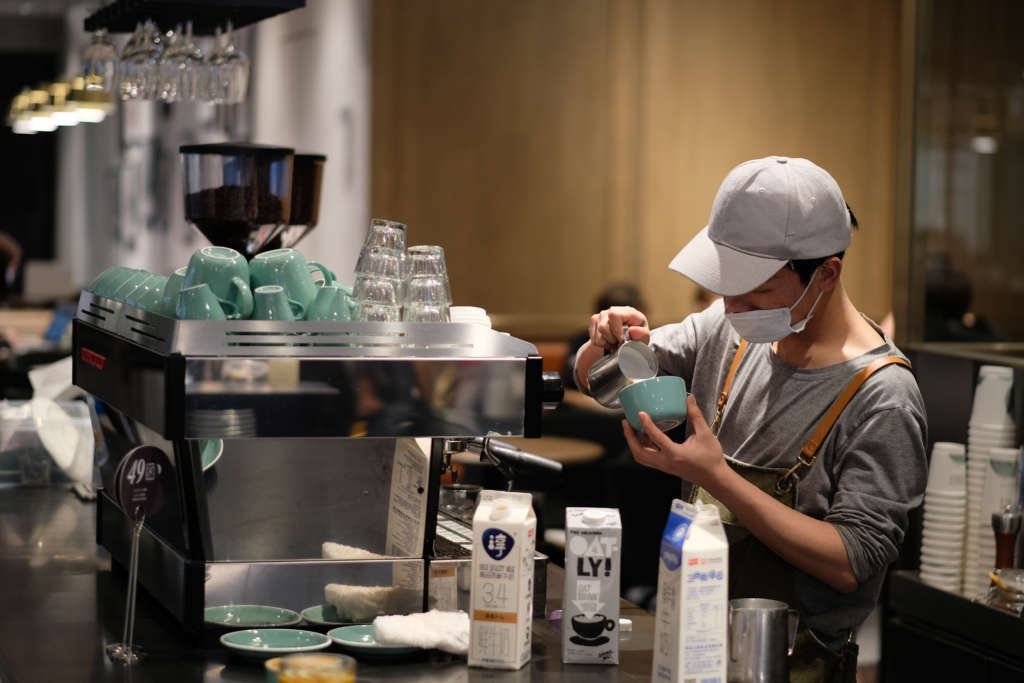Sick leave and the current COVID-19 landscape

Since the start of the year, we have seen the Omicron variant rapidly spread throughout the country with thousands of positive cases in the community every day. While putting an obvious strain on our health sector with a barrage of hospital admissions, other industries have also been heavily impacted with large numbers of employees being required to isolate at home. The hospitality industry has been no exception, with many businesses being forced to shut their doors over the past months due to temporarily losing staff who have been required to isolate.
As more staff have been required to isolate, either because they have COVID-19, or as household contacts, members have highlighted to us the difficulties that have arisen with regards to determining how sick leave is used and how this intersects with the financial support that is currently available to employers to assist them with retaining their staff.
The use of sick leave in employment law involves employees taking paid time off to recover from being sick or injured, or to take care of their sick/injured spouse, partner, or dependent/s. Note the following factors regarding sick leave:
- An employee will be entitled to 10 days of sick leave after working for the same employer continuously for six months. Each employee will receive another 10 sick days after completing a further 12 months of employment from then on.
- Sick leave is paid at the employee’s relevant daily pay (or average daily pay, if applicable).
- When an employee would have worked on a public holiday but is sick or bereaved, the day is treated as a paid unworked public holiday and the employee is paid their relevant daily pay or average daily pay but is not entitled to time and a half or an alternative holiday. Additionally, no sick or bereavement leave should be deducted.
- Sick leave does not get paid out to employees when they leave their employment.

The COVID-19 Leave Support Scheme
By now, you will likely have utilised the COVID-19 Leave Support Scheme (“LSS”). This scheme was established to assist employers with paying their employees who are required to self-isolate due to testing positive for COVID-19, or, being deemed a household contact (someone who lives with another individual who has tested positive for COVID-19) and therefore unable to come to work.
Payments available under the LSS are $359 per part-time employee (part-time being an employee that works fewer than 20 hours a week) and $600 per full-time employee (an employee that works 20 or more hours a week).
There has been some understandable confusion surrounding the LSS and how an employer can use it to pay their employees. A frequent misconception of this financial support is that it is immediately passed on to employees. However, how and why the LSS is utilised depends on both your employee’s personal circumstances and how they would like to be paid while isolating.
Self-isolating employees
It is crucial that employers understand that employees should only be paid sick leave when their employees are legitimately sick. In instances when the employee falls ill, the employer should encourage their employees to use their sick leave entitlement, if it’s available.
However, it is important to note that an employee merely self-isolating because they are a household contact, does not need to use any existing leave entitlements and the LSS is an option for employers to consider in this situation – to pay their staff “special paid leave”. This is because employment law does not consider specific payments be made for the purpose of self-isolation when an individual is not sick.

A self-isolating employee who is not actually sick could also possibly go on ‘leave without pay’. However, it is not reasonable for the employer to bear the cost of government mandated self-isolation when there are no existing provisions under employment law that allow for this
Self-isolating sick employees
Another question is, what about employees who are sick, and self-isolating; should the employer apply for the LSS and pay them the payment as special paid leave? Or if sick leave entitlement is available, should the employer then discuss this as an option?
While the government is assisting employers to pay for self-isolation, many employees have been intending to keep their sick leave entitlement for later in the year. However, this is entirely dependent on the conversation between the employer and employee and what agreement they come to.
An option is for employers to apply for LSS (with the permission of the employee), to help them pay for the sick leave entitlement. Although an employee cannot be forced to take sick leave, the entitlement is there to be used when an individual is sick/ill/injured and cannot report to work, as is the case when they have COVID-19. However, an employer is not required under law to apply for LSS and may choose to let the employee know that their sick leave is available to them and will be paid to them while they are sick and away from work, without applying for LSS.
In this situation, we encourage you to discuss this with your employee and come to an arrangement that suits both parties, as the law is not yet set in stone on this matter.

The Association’s view is that sick leave be used when an employee is sick/ill/injured and cannot report to work. If the government is providing financial assistance to employers, this should not replace the requirement to take sick leave under the Holidays Act 2003 while sick. The LSS financial assistance is targeting employers who need to support employees who are self-isolating and unable to work. It assists employers to pay the employee, but it should not replace sick leave entitlements.
As it is established that the LSS can be used to assist the employer with covering sick leave payments for employees who have tested positive for COVID-19, then employees must also provide consent to their employers applying for the LSS on their behalf. This can be done in a letter proposing to the employee that you intend to apply for the LSS on their behalf and are seeking confirmation in writing on how the employee would like to be paid. We have created a resource available on our website that can assist you with this.
Remember, there is no legal requirement for the employer to apply for the LSS. However, under good faith obligations, it is good practice to communicate with your employees and indicate this to them.
Please refer to our resources page for our guide and template letters to use prior to applying for the Leave Support Scheme. Call the Helpline team on 0800 737 827 if you need to discuss anything.
